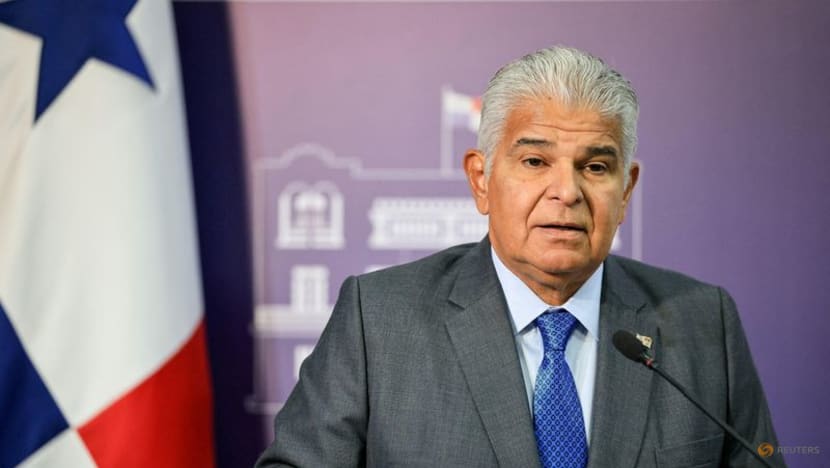Panama formally pulls out of China's Belt and Road Initiative

PANAMA CITY: In a key concession to Washington, Panama President Jose Raul Mulino on Thursday (Feb 6) confirmed that Panama had pulled out of China's massive Belt and Road Initiative (BRI) infrastructure programme.
Mulino said that the Panamanian Embassy in Beijing had given China the required 90-day notice of its decision not to renew its involvement in the programme, which it joined in 2017.
Panama is the first Latin American country to announce its withdrawal from President Xi Jinping's signature, trillion-dollar programme, which operates in over 100 countries.
On Wednesday, China's Foreign Affairs spokesman, Lin Jian, had argued that the partnership was yielding "fruitful results" and urged Panama to "resist external interferences".
This comes at the end of Marco Rubio's week-long visit to Central America, his first as the US top diplomat.
He had threatened action against Panama unless it made immediate changes to reduce Chinese influence on the canal but later appeared more conciliatory, hailing Mulino's pledge to quit China's infrastructure programme as a "great step forward" for bilateral relations.
Following Trump's canal takeover threat, Mulino last month ordered an audit of Hutchison Holdings.
"If they violate the terms of the concession or cause imminent economic harm to the country, we will act accordingly, but for now the audit is ongoing," he said Thursday.
Panama, however, rejected the United States' claim of securing free passage for its government vessels through the Panama Canal.
Still, it is possible that Panama might choose to reduce the fees for the US, said Julie Greene, professor of history at the University of Maryland.
“It seems that the two big factors that play here are China's role and the fees that the United States is paying. And so we're already seeing some movement on China's role, and I expect there could be movement on fees as well, but certainly, the idea of no fees at all is not realistic,” she told CNA’s Asia First.
Mulino told reporters on Thursday the US assertion about the waterway was "intolerable," adding that he rejected "bilateral relations based on lies and falsehoods."
The State Department earlier in the week claimed US government vessels would be able to pass through the Panama Canal without paying, a move that would save the US millions of dollars a year.
The comments were likely to exacerbate tensions between the two countries after the US had cited progress on military cooperation and confronting alleged Chinese influence over the canal.
Later, Mulino added on social media that he would speak to US President Donald Trump on Friday afternoon.
Panama has been in the White House's crosshairs since Trump claimed the country's vital waterway had effectively been taken over by China and vowed the US was "taking it back".
US Secretary of State Rubio said on Thursday it was "absurd" for US naval vessels to pay to transit the Panama Canal, after Panama's president denied an agreement on free passage.
"I find it absurd that we would have to pay fees to transit a zone we are obligated to protect in time of conflict. Those are our expectations," Rubio told reporters in the Dominican Republic.
Rubio, however, stopped short of insisting that an agreement had been reached.
"They're a democratically elected government. They have rules; they have laws. They're going to follow their process, but our expectations remain the same," he said.
Trump has accused the Central American country of charging excessive rates to use its trade passage, one of the busiest in the world."Why are they making an important institutional statement from the entity that governs the foreign policy of the US, under the president of the US, based on a falsehood?" Mulino asked, calling the claim "simply and plainly intolerable".
Mulino said he asked his ambassador in Washington to take "firm steps" to reject the claims made by the Trump administration.
After the visit, Rubio welcomed Panama's decision not to renew participation in China's Belt and Road Initiative, a vast global infrastructure plan led by Beijing, calling the move "a great step forward" for bilateral ties.
On Thursday, Mulino said Panama had formally presented a document to exit the Belt and Road Initiative but denied the decision had been made at the request of the US, adding he was taking time to evaluate Panama's relationship with China and what was best for the country.















